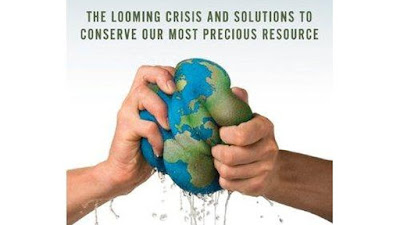The Nile Basin Initiative
Hello and welcome back! In this blog post, I am going to be talking about the Nile Basin Initiative. The River Nile is a river that has, in recent history, been a site for both conflict and cooperation. It is the world’s largest river and flows through 11 countries, impacting and influencing over 300 million people (Kaasa, 2015). The transboundary nature of the river provides a distinct challenge, with regards to managing the river in a ‘truly sustainable’ manner which benefits all. (Metawie, 2004: 48).
|
Recent History of Nile Management
Previous to the introduction of the NBI, there has been an evident history with regards to treaties and agreements with regards to the allocation of water resources along the River Nile. There are were two significant agreements prior to the NBI over the past century:
- The 1929 agreement between Egypt and Sudan (Brookings)
This agreement essentially meant that Egypt had full control over the Nile between January and July every year. The agreement also 'granted Egypt veto power' with respect to construction taking place along the Nile. This was an attempt to prevent tampering with regards to the flow of the river.
- The 1959 Niles Water Agreement between Egypt and Sudan
Under this agreement, Egypt had rights to over 80% of the Nile’s water, with Sudan having rights to the remaining amount (Barnaby, 2009). Sudan's water allocation increased considerably, from '4 billion cubic meters to 18.5 cubic meters' (Brookings). Egypt's water allocation similarly saw an increase. However, this agreement, like the 1929 agreement, did not account for the water demands of the other Nile Basin countries.
Nile Basin Initiative
The Niles Basin Initiative (NBI) was an agreement signed between ten Nile basin nations in 1999, aiming to balance the allocation of water resources. The partnership was between the following countries (as shown in the map above): Egypt, Ethiopia, South Sudan, The Sudan, Kenya, DR Congo, Rwanda, Uganda, Burundi and Tanzania (Nile Basin site).
The Nile has a complex history with regards to the management of the Nile. Rapid population growth within Nile Basin countries, coupled with improving living standards, have meant that there is an ever growing demand for water resources (Kaasa, 2015). It was therefore essential for the 11 basin countries to work in tandem, in order to manage the Nile's water in a way that is both 'equitable and efficient', meeting the demand that is present (Kaasa, 2015).
The NBI has a common objective, which is ‘to achieve sustainable socioeconomic development through the equitable utilization of, and benefit from, the common Nile Basin water resources’ (Kimenyi & Mbaku, 2015, p. 74). In addition to this, there are five further objectives, as quoted from the NBI website:
- To develop the Nile Basin water resources in a sustainable and equitable way to ensure prosperity, security and peace for all its peoples
- To ensure efficient water management and the optimal use of the resources
- The ensure cooperation and joint action between the riparian countries, seeking win-win gains
- To target poverty eradication and promote economic integration
- To ensure that the program results in a move from planning to action'.
Recently, a NBI 10 year strategy was announced, aiming to achieve six key goals between 2017 and 2027. The strategy has a shared vision, as quoted from the Nile Basin site, which is ‘to achieve sustainable socio-economic development through equitable utilisation of, and benefit from the shared Nile Basin water resources’. The six key goals are as follows (NBI Strategy 2017-2027):
- To improve the management of transboundary water resources to ensure that they are sustainable and meeting the needs of all the riparian states.
- To improve hydropower development within the Nile basin
- To make agricultural water use more efficient in order to address the 'food security challenge'
- 'To protect, restore and promote sustainable use of water related ecosystems across the basin'
- To improve 'basin resilience to climate change impacts'
- 'To strengthen transboundary water governance in the Nile Basin'
Impacts:
Water is such an essential resource, and therefore in analysing the effectiveness of the NBI, it is important to consider that there are a variety of factors through which effectiveness can be judged (Nile Basin Initiative, 2016). Are both short-term and long-term water demands being met? Are water demands for different sectors (such as agricultural use, domestic use, industrial use and hydropower) being met? Is the demand being met in both upstream and downstream countries?


Comments
Post a Comment